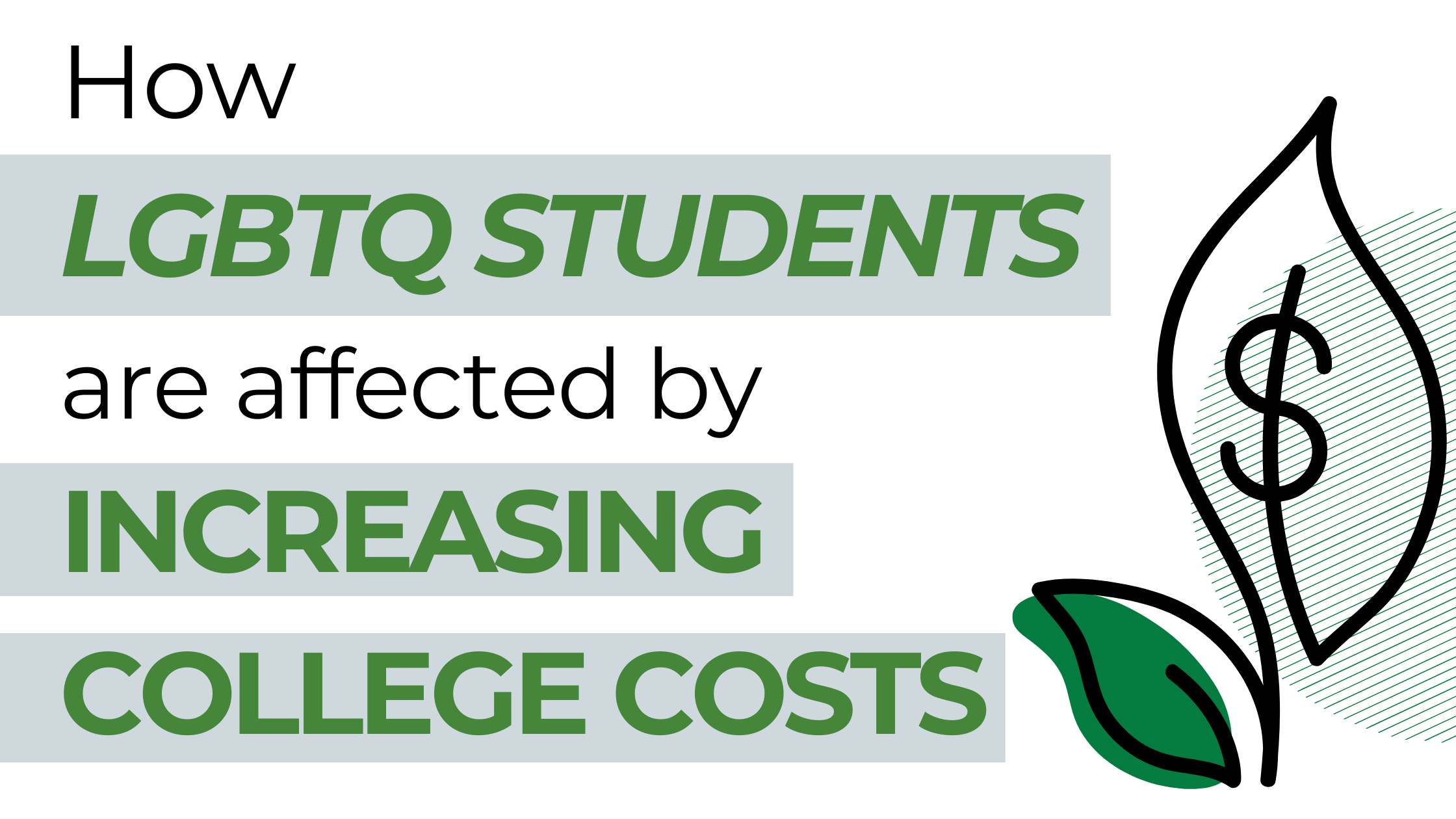The price of higher education is increasing and the cost of denying access to those who want to attend college but can’t afford it is even greater.
The average cost of a college education has skyrocketed over time and rapidly in the last few years. Undergraduate tuition, fees, and room and board charges at public schools rose from an average of $8,783 in 1970 to $21,337 in 2021, according to the Pell Institute. Unfortunately, the climbing admission costs do not align with increases in financial aid packages, scholarships, or Pell Grant awards.
This means borrowing more funds and that may have more impact on LGBTQ+ students who face more student debt than their straight, cisgender peers, according to a report Point Foundation collaborated on with the Williams Institute.
“When you look at the cost of higher education to begin with, and the fact that it’s gone up by almost 200% since the ’80s, it becomes very inaccessible to some individuals, especially those in our community who might not have the support that others do,” said Point Foundation Executive Director and CEO, Jorge Valencia to Insight Into Diversity.
What are the effects of the rising cost of going to college on LGBTQ+ Students?
These inflated education costs have inordinately impacted marginalized communities Point research, in collaboration with the Williams Institute, shows that LGBTQ+ adults are more likely to have federal student loans than non-LGBTQ+ adults (35.4% vs. 23.2%). LGBTQ+ adults ages 18 to 40 with federal student loans owe an average (mean) of $34,000 in federal loans and $47,500 in total student debt.
Transgender adults are almost twice as likely to have federal student loans than their cisgender counterparts. Student debt is also significantly more burdensome for students of color. For example, Black students graduate with $25,000 more debt than their white classmates.
What is happening with student loan forgiveness?
The Biden Administration has approved a one-time plan to alleviate student debt which will benefit 800,000 borrowers who have had student loans for 2-25 years. The government allocated $40 billion for this student debt relief program, and borrowers are receiving notifications now about their eligibility.
Meanwhile, the heavy burden of student college costs may affect students’ decisions to go to school or continue to pursue their education. This year, 48.7% of Point scholarship applicants said they would be unable to attend school in the 2023-2024 academic year without a Point scholarship.
“Affording college without aid was unrealistic, and after being accepted to my first-choice school, I knew the only way it was possible was through scholarships like the one at Point Foundation,” said American University graduate and Point Alum Jadyn. “As someone who has worked multiple jobs throughout college to afford my education, Point has made tuition feel more possible with the scholarship assistance.”
How Point Foundation is Helping
Point Foundation strives to make higher education more accessible and equitable for LGBTQ+ students by providing financial and community support to help them achieve their goals.
University of Iowa graduate and Point Alum Nathen shared that his scholarship has drastically changed his life. “I have cut back on my tutoring [job], I’ve been able to focus more on my studies, and just overall helped alleviate that pervasive financial stress that invades almost every part of my life,” Nathen said.
A college education continues to be a source of empowerment and a means to achieving equity, greater earning capacity, and happiness in our society. As the nation’s largest LGBTQ+ scholarship fund, Point will continue to support and encourage LGBTQ+ students on their journey through higher education. By alleviating some of their financial burdens today, Point Scholars are empowered to become the LGBTQ+ leaders of tomorrow.

